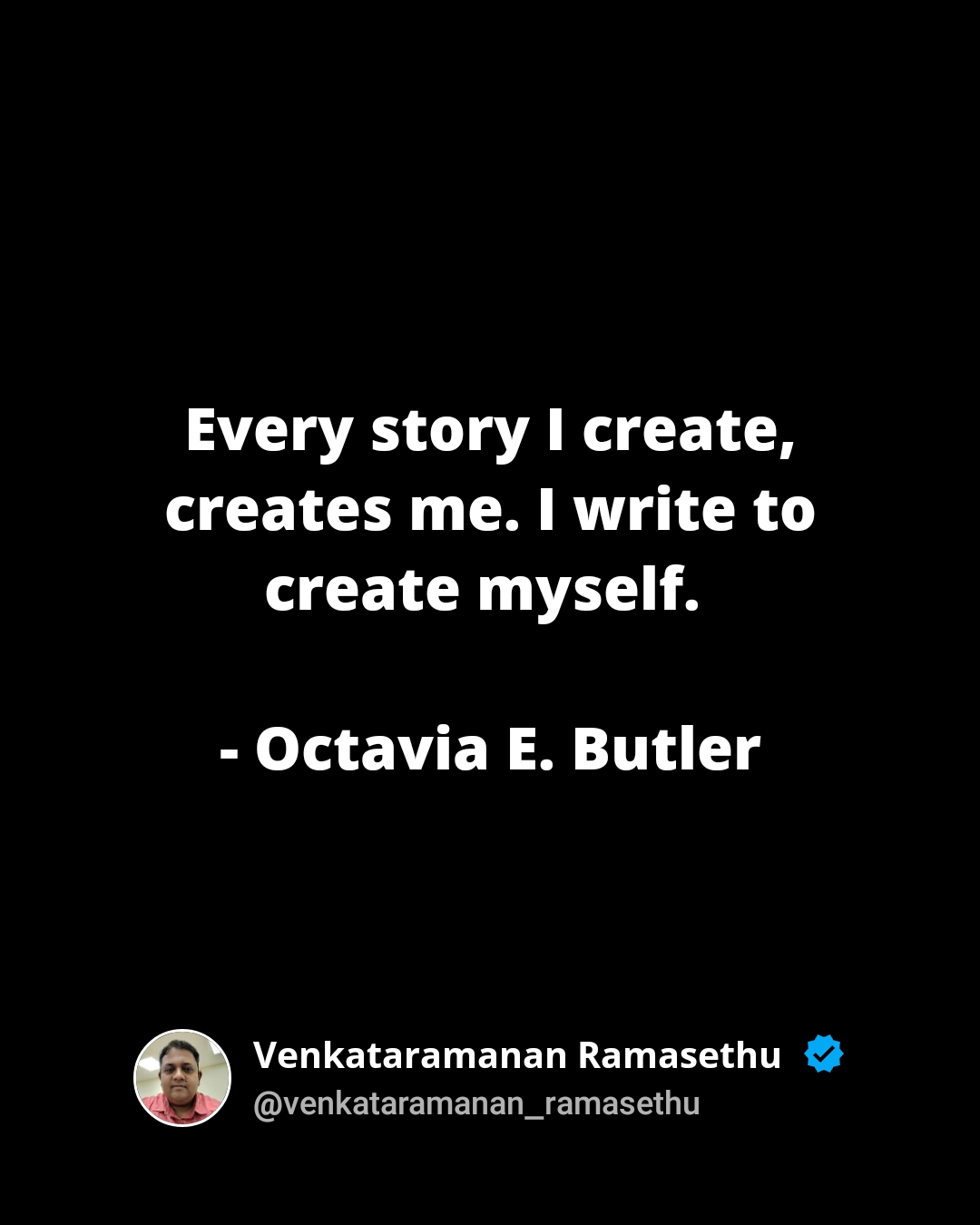"Every story I create, creates me. I write to create myself."
The quote "Every story I create, creates me. I write to create myself." by Octavia E. Butler offers a profound reflection on the process of storytelling and its impact on the storyteller. This statement encapsulates the transformative power of writing, not just as a means of communication or artistic expression, but as a fundamental tool in shaping the identity and consciousness of the writer. Butler, an acclaimed science fiction writer, often explored themes of identity, change, and resilience in her work, making this quote a reflective echo of her literary ethos.
At its core, Butler's statement underscores the symbiotic relationship between creation and creator. Writing is not merely an act of transcribing thoughts into words; it is a process of discovery and creation that extends to the self. Each story a writer crafts is a reflection of their current understanding, their emotions, and their worldview. In turn, the act of writing these stories influences the writer, challenging their perceptions, expanding their understanding, and often reshaping their identity.
This notion of writing as a form of self-creation is particularly resonant in the context of Butler's own life and work. As an African American woman writing in a genre historically dominated by white men, Butler carved out a space for herself and her stories, using her unique voice to explore and question the boundaries of society, humanity, and the universe. Through her writing, she not only created compelling narratives and characters but also constructed her identity as a writer, thinker, and visionary.
Butler's quote also speaks to the broader impact of storytelling on human consciousness. Stories have the power to shape cultures, influence perspectives, and inspire change. In writing, individuals not only create their narratives but also contribute to the collective human narrative. The stories we tell and the identities we construct through our writing ripple outwards, affecting others and reflecting back on us, further shaping our sense of self.
Moreover, Butler's words highlight the courage and vulnerability involved in writing. To write with the intention of creating oneself is to engage in an act of self-examination and transformation. It requires the writer to confront their fears, desires, and uncertainties, weaving these elements into their narratives. This process of self-creation is ongoing, with each story offering a new opportunity for exploration and growth.
In conclusion, Octavia E. Butler's statement "Every story I create, creates me. I write to create myself." is a powerful testament to the transformative power of writing. It encapsulates the essence of storytelling as a means of self-discovery and creation, a journey that not only shapes the narratives we craft but also the very individuals we become. Butler's legacy, both as a writer and as an individual, serves as a beacon for the importance of storytelling in our lives, urging us to embrace the act of writing as a pathway to understanding and shaping our identities.


